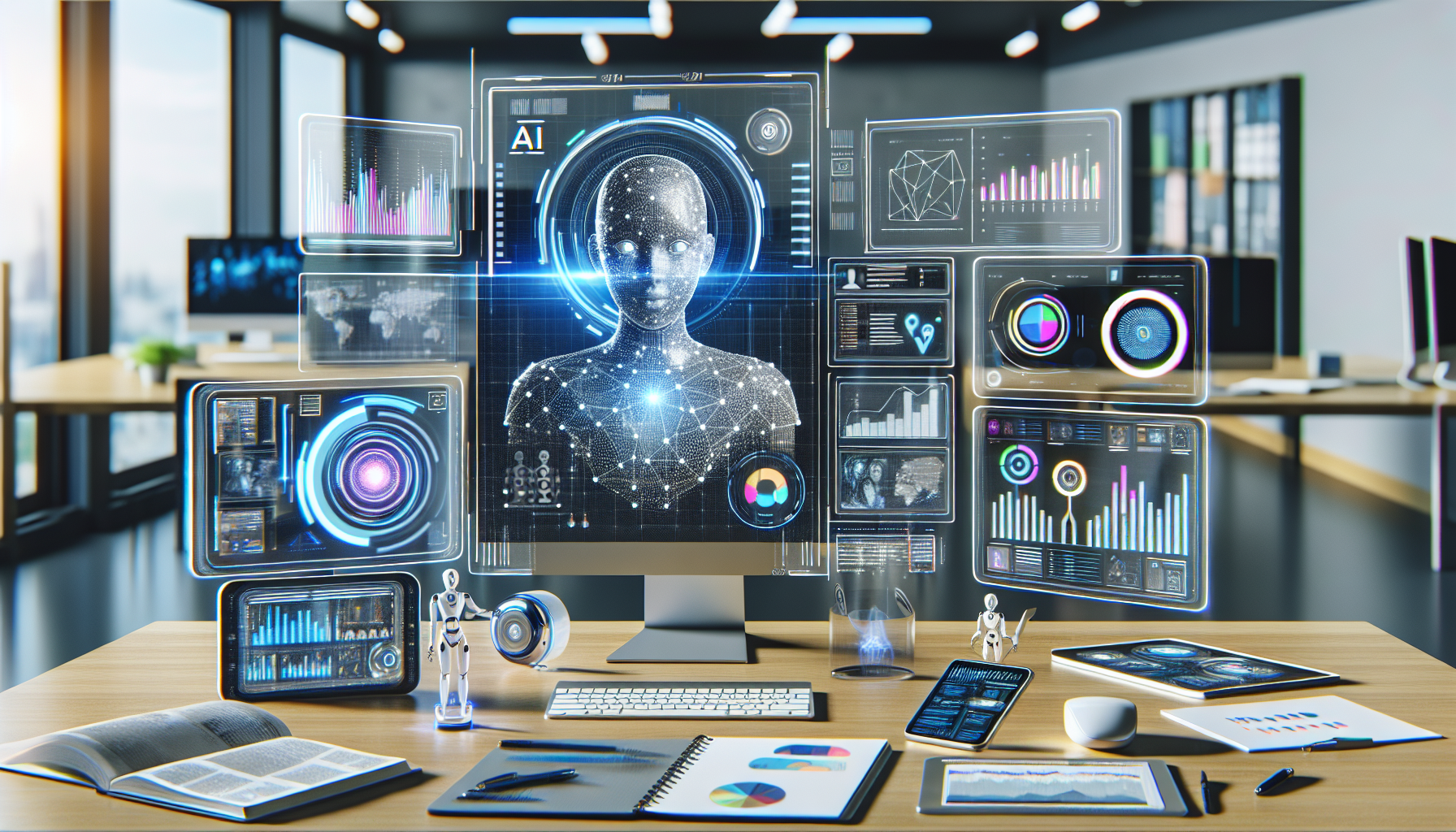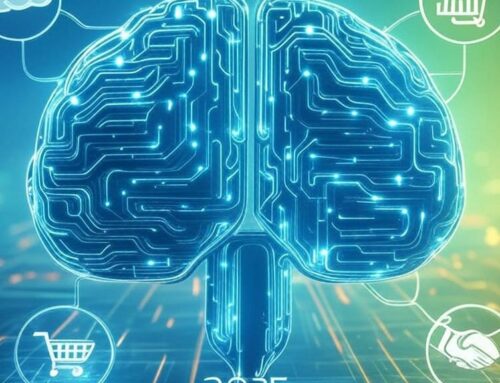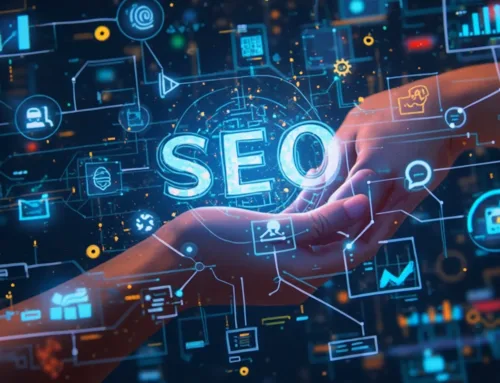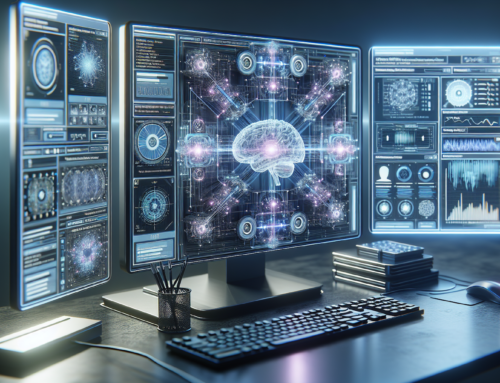AI Shaking Up Digital Advertising
Artificial intelligence is flipping digital advertising on its head, making it smarter and more effective. Let’s see how AI Digital Marketing is changing the game in targeted ads and predictive analytics for campaign success.
Targeted Advertising with AI
AI has come a long way in making ads hit the bullseye. It helps advertisers craft super-personalized ad experiences by crunching huge amounts of data and spotting patterns in how people behave online. This means ads are more likely to reach the right folks and get them to engage.
One cool thing AI does in targeted advertising is dynamic pricing and content tweaking. Platforms like Google Ads and Meta Ads use AI to sell, target, and place ads in real-time across massive networks (Marketing AI Institute). This way, ads land in front of the right eyes at the perfect moment, boosting your return on investment (ROI).
AI-powered programmatic ad platforms take care of the whole ad buying process, from placement to tweaking. They make real-time changes based on who’s watching, what they’re doing, and where they are (Forbes). This means ads run smoother and perform better.
Want to know more about how AI can up your ad game? Check out our section on AI for ad targeting.
Predictive Analytics for Campaign Optimization
AI’s knack for predicting the future is a big win for digital advertising. By digging into heaps of data, AI can spot trends and guess what people will do next. This helps advertisers design campaigns that really click with their audience.
Predictive analytics lets advertisers tweak their campaigns by changing up ad designs, budget plans, and targeting rules based on real-time data and insights. This means campaigns are more effective and get better results (Forbes).
AI can also guess how well ad campaigns will do, helping marketers make smart choices that boost ROI. Modern ad platforms use AI to keep an eye on and adjust campaigns all the time, making sure they’re always performing their best (Marketing AI Institute).
Want to dig deeper into how AI can boost your campaign strategies? Check out our article on AI for marketing campaign optimization.
By using AI in targeted ads and predictive analytics, digital marketers can create more personal and effective campaigns, driving better results and higher engagement.
AI-Driven Personalization
In digital marketing, AI is the secret sauce for creating personalized experiences. Let’s break down how AI makes real-time content customization and ad buying a breeze.
Real-Time Content Tailoring
AI-driven personalization in digital ads means delivering content that feels like it was made just for you. This boosts user experience, builds brand loyalty, and keeps customers coming back. By sifting through tons of data like browsing history, purchase records, and social media activity, AI figures out what customers like and how they behave (LinkedIn).
| Data Source | Example Data Points |
|---|---|
| Browsing History | Pages visited, time spent on each page |
| Purchase Records | Products bought, frequency of purchases |
| Social Media Interactions | Likes, shares, comments, engagement rates |
AI can whip up personalized content automatically. From emails to social media posts, everything a customer sees feels like it was made just for them. This level of customization is key for effective AI for personalized marketing.
Automation in Ad Buying
AI has turned the ad buying process on its head with programmatic advertising platforms. These platforms automate buying, placing, and optimizing ads in real time based on who’s watching, what they’re doing, and where they are.
AI-powered ad platforms can run thousands of ad variations for tiny, specific audiences. This is a tough job for humans but a piece of cake for AI.
| AI Ad Platform Feature | Benefit |
|---|---|
| Real-Time Bidding | Efficient ad placement based on live data |
| Audience Segmentation | Targeted ads to specific user demographics |
| Ad Variation | Multiple ad versions for micro-segmented audiences |
To get the most out of AI in ad buying, use platforms that process data and provide audience insights in real time for AI in programmatic advertising. This ensures ads are not just well-placed but also super relevant to the audience.
By weaving AI into your digital marketing game plan, you can achieve top-notch personalization and efficiency. For more on how AI is shaking up digital marketing, check out our articles on artificial intelligence in digital marketing and AI marketing automation.
Voice and Visual Search Optimization
Connecting with Consumers Naturally
Getting your content and ads ready for voice and visual search helps brands connect with people in a more natural way. Using AI, marketers can make sure their stuff is easy to find and stands out in a crowded market.
Voice search lets folks talk to their devices like they’re chatting with a friend. This tech makes things more conversational and user-friendly. Brands can jump on this by tweaking their content for voice searches. Think about how people ask questions and adjust your content to match. Using longer keywords and natural phrases can help your brand pop up in voice search results.
Visual search is all about using images instead of words to find stuff. AI looks at the pictures and gives back relevant results, making it easier for users to find what they need. Brands can get in on this by making sure their images are top-notch and tagged with the right info.
Boosting Visibility and Relevance
AI is a game-changer for making content more visible and relevant in voice and visual searches. By crunching tons of data, AI can spot patterns and trends that help shape better content strategies. This means your content not only reaches the right people but also clicks with them.
For voice search, AI can personalize the marketing experience on the fly. Imagine customizing a webpage visit based on someone’s browsing history or sending special offers to mobile users based on where they are (LinkedIn). This kind of personalization keeps users engaged and makes marketing campaigns more effective.
Visual search optimization uses AI to sort and tag images accurately. This can boost a brand’s online presence by making its products and services easier to find. Big names like Amazon, Netflix, and Spotify use AI to suggest products, pick content, and offer personalized solutions based on what users like (Forbes).
Check out how different brands use AI for voice and visual search optimization:
| Brand | AI Application | Benefit |
|---|---|---|
| Amazon | Visual Search | Better product discoverability |
| Netflix | Voice Search | Smarter content recommendations |
| Spotify | Voice & Visual Search | Personalized music and podcast picks |
By weaving AI into their digital marketing plans, brands can boost their visibility and relevance, staying ahead in the fast-paced digital world. For more on how AI is shaking up digital marketing, check out our articles on artificial intelligence in digital marketing and ai-powered content marketing.
Predicting Customer Behavior
Getting a handle on what your customers are up to is key for any marketing game plan. Thanks to AI, this job’s gotten a whole lot easier and way more accurate.
Spotting the Right Prospects
AI is a whiz at picking out who’s most likely to bite on your offers. By digging through heaps of data like browsing habits, purchase history, and social media chatter, AI can pull out golden nuggets about potential customers. This means you can zero in on folks who are more likely to buy.
For instance, AI can help you slice and dice your audience based on their online moves, past buys, and how much they engage. This way, you can whip up marketing strategies that hit home with your crowd. Want to know more about how AI can boost your lead generation? Check out our piece on AI for lead generation.
Reading Customer Patterns
AI is also a champ at spotting customer behavior patterns. Machine learning can chew through massive data sets to find trends and patterns that would fly right over our heads. These insights can help you craft better marketing strategies to boost conversion rates, website traffic, or lead generation.
With AI, you can predict customer behavior with pinpoint accuracy. For example, AI can figure out what a customer might buy next based on their past purchases and preferences. This lets you tweak your messages and offers on the fly, making the customer experience smoother and more engaging.
| Metric | Before AI | After AI |
|---|---|---|
| Conversion Rate | 2% | 5% |
| Website Traffic | 10,000 visits/month | 15,000 visits/month |
| Lead Generation | 200 leads/month | 450 leads/month |
Numbers courtesy of eLearning Industry
For a deeper dive into how AI can help you read customer behavior, swing by our detailed article on AI for customer behavior analysis.
AI-driven personalization is also a game-changer in tweaking marketing efforts for individual consumers. Using machine learning, AI can predict and adapt to user behaviors on the spot, offering a super personalized experience that ramps up engagement and conversion rates (Forbes).
Curious about how AI can supercharge your marketing strategies? Check out our all-in-one guide on AI-powered marketing analytics.
Boosting Customer Engagement
Using AI in digital marketing has changed the game for businesses looking to connect with their customers. By keeping tabs on interactions and improving experiences, companies can forge stronger bonds with their audience.
Keeping Tabs on Customer Interactions
AI tools are great at monitoring customer interactions across different platforms. By looking at data like browsing history, purchase records, and social media activity, AI gives us a peek into customer behavior patterns.
With AI, I can break down my audience into smaller, more manageable groups, spot potential leads, and tweak marketing strategies to fit their tastes. This kind of insight means marketing efforts hit the mark, making sure they resonate with the right folks.
| Interaction Type | Data Tracked | AI Application |
|---|---|---|
| Browsing History | Pages visited, time spent | Personalization, targeted ads |
| Purchase Records | Items bought, frequency | Product recommendations |
| Social Media | Likes, shares, comments | Social listening, sentiment analysis |
Want to know how AI can help with lead generation? Check out our article on AI for lead generation.
Making Customer Experience Better
AI-driven personalization has changed how I deliver content to my customers. By using real-time data, AI helps customize marketing experiences, like personalizing webpage visits based on browsing history or sending targeted offers to mobile users based on their location (LinkedIn).
AI algorithms can sift through tons of data to pull out insights about customer preferences and behaviors. This means I can create marketing strategies that not only improve user experience but also build brand loyalty and encourage repeat business.
For more on how AI can enhance customer experience, check out our article on AI for customer experience enhancement.
| Enhancement Strategy | AI Application | Benefit |
|---|---|---|
| Webpage Personalization | Browsing history analysis | Increased engagement |
| Targeted Offers | Location-based data | Higher conversion rates |
| Product Recommendations | Purchase history analysis | Improved customer satisfaction |
For more on AI-driven personalization in marketing, see our article on AI for personalized marketing.
By using AI to keep track of customer interactions and improve their experience, I can make sure my marketing efforts are more effective and impactful. This not only boosts customer satisfaction but also helps my business grow.
AI for Targeted Audience
Artificial Intelligence (AI) has flipped digital marketing on its head, especially when it comes to zeroing in on specific audiences. With AI, marketers can slice and dice consumer data like never before, crafting marketing strategies that hit the bullseye.
Predictive Consumer Segmentation
Predictive consumer segmentation is a game-changer in AI digital marketing. It lets marketers target folks based on what they like and how they behave. By crunching mountains of data, AI can guess which consumers will dig a particular campaign. This means more accurate targeting, better engagement, and higher conversion rates (Metrics Watch).
| Segmentation Method | Effectiveness (%) |
|---|---|
| Traditional Segmentation | 60 |
| Predictive Segmentation | 85 |
AI-driven segmentation also uncovers niche markets that might’ve slipped under the radar. By getting what these unique groups want, marketers can craft messages that hit home, building brand loyalty and repeat business.
Want to dive deeper into AI for segmentation? Check out our piece on AI for audience targeting.
Effective Marketing Strategies
Once you’ve got your audience segments, AI can supercharge your marketing strategies by automating personalized content creation. Whether it’s emails or social media posts, AI makes sure every piece feels like it was made just for the recipient, boosting user experience and engagement.
AI-powered ad platforms, like those on Facebook and Instagram, can run thousands of ad variations to micro-segmented audiences at scale. This is something human ad pros would struggle to keep up with (Marketing AI Institute).
| Platform | Ad Variations |
|---|---|
| Manual | 50 |
| AI-Powered | 5000 |
AI decides who sees the ads and fine-tunes the spending to reach these folks effectively. This level of precision can make or break an ad campaign (Marketing AI Institute).
For tips on weaving AI into your marketing game plan, check out our guide on AI for marketing strategy development.
By weaving AI into your digital marketing, you can nail down your targeting and craft killer marketing strategies. This not only boosts customer engagement but also gets you the most bang for your buck on your marketing spend.
Marketing Automation with AI
Automating Marketing Processes
I’ve seen how AI has shaken up digital marketing, making it way more efficient and spot-on. One of the coolest things AI does is automate marketing tasks. Think about PPC ads, search engine marketing, and keyword research—all these can be automated, saving tons of time and effort.
Take ad buying, for example. AI-powered platforms can handle buying, placing, and optimizing ads in real-time. This means ads hit the right people at the right time, based on their demographics, behavior, and context. Here’s a quick rundown of how AI automates different marketing tasks:
| Marketing Task | AI Superpowers |
|---|---|
| PPC Ads | Adjusts bids, places ads, tracks performance |
| SEM | Optimizes ads and manages budgets on the fly |
| SEO | Finds keywords, analyzes trends, optimizes content |
| Social Media | Schedules posts, analyzes performance, engages audiences |
With these tools, marketers can focus on strategy and creativity while AI handles the grunt work. For instance, AI can manage social media campaigns, spot trends, and tweak messages for better engagement.
Personalization at Scale
Personalization is the name of the game in digital marketing, and AI makes it possible on a massive scale. AI can sift through heaps of data to create personalized experiences for each customer. By using AI, I can send out content, offers, and messages that hit home with individual preferences and behaviors.
AI-powered ad platforms can run thousands of ad variations for micro-segmented audiences—a task that would be a nightmare for humans to manage manually (Marketing AI Institute). Here’s how AI boosts personalization:
| Personalization Trick | AI Magic |
|---|---|
| Content Tailoring | Adjusts content in real-time based on user actions |
| Ad Variations | Creates thousands of personalized ads for different segments |
| Customer Journey | Uses predictive analysis to personalize every stage of the journey |
| Engagement | Sends personalized emails, recommendations, and interactions |
With AI, I can automate personalized content delivery across different channels, making sure each customer gets relevant and timely messages. This not only ramps up engagement but also makes the customer experience way better. For more on AI-powered personalization, check out our article on AI for personalized marketing.
By jumping on the AI bandwagon for marketing automation and personalization, I can seriously boost the efficiency and impact of my marketing efforts. Whether it’s automating boring tasks or delivering personalized experiences at scale, AI is a game-changer in digital marketing. Dive deeper into AI marketing automation to stay ahead of the curve.
Ethical Considerations with AI
When we talk about AI in digital marketing, we can’t ignore the ethical stuff that comes with it. We’re talking about being open, taking responsibility, and making sure we’re not being unfair or biased.
Being Open and Responsible
Being open and responsible is a big deal when it comes to using AI in marketing. AI is everywhere now—in ads, customer service, and even in how we shop online. But with great power comes great responsibility, right? We need to be careful about privacy, making fair decisions, and not tricking people into buying stuff they don’t need.
To keep things fair, businesses should:
- Check for Bias: Regularly audit AI algorithms to make sure they’re not biased.
- Be Clear: Let people know where the data comes from and how decisions are made.
- Explain Decisions: Make it easy to understand how AI-driven choices are made.
Creating ethical guidelines for AI is super important. These rules should cover being open, fair, and respecting privacy. It’s not just tech folks who should be involved; we need lawyers, ethicists, customer reps, and industry experts to pitch in.
Governments are also stepping in with rules to make sure AI is used responsibly. Take the European Union’s GDPR, for example. It gives people the right to know and control how their data is used.
Stopping Bias and Discrimination
Stopping bias and discrimination in AI is another big deal. Sometimes, AI can pick up on biases in the data it’s trained on, leading to unfair results. This can be a real problem, especially in areas like hiring, credit scoring, and personalized marketing.
To tackle this, businesses should:
- Use Diverse Data: Train AI models on a wide range of data to cut down on biases.
- Detect Bias: Use tools to find and fix biases in AI algorithms.
- Build Diverse Teams: Have a mix of people working on AI to bring different viewpoints and reduce bias.
Ethical AI means keeping an eye on things and updating systems as new data and societal norms change. This helps catch and fix any new biases or unfair patterns.
The ethical side of AI in marketing has been a hot topic at events like the Business School DEI Collaborative Conference hosted by Texas Christian University. They’ve talked about the risks of misusing AI in marketing.
By focusing on being open, responsible, and fair, businesses can handle the ethical challenges of AI in digital marketing. This way, AI can be used in a way that’s good for everyone.
For more on how AI is shaking up digital marketing, check out our articles on artificial intelligence in digital marketing, ai for audience targeting, and ai marketing automation.




